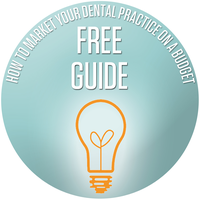
As part of America's largest generation, Millennials are on target to make an enormous cultural and economic impact. Millennials make up one-third of the population. The first wave is entering their 30s and establishing themselves as professionals. Then there will be four generations in the workplace. And they will be providing care for six generations.
For Millennial dentists, bridging the generation gap will be crucial to success. Each generation grows up under the influence of events that happen during their formative years. Understanding the 'style' and needs of each group is important. It will allow you to provide excellent care. You will also grow your patient base. In addition, it will create employee satisfaction since several generations will be working together. Let us look at the generations you may encounter in your practice.
Greatest Generation: Born between 1901-1924. This group is elderly, but also quite proud. You may have some as patients.
Dental issues: Lack of dental care in childhood and during the Great Depression may have caused chronic problems. Since Medicare Parts A and B do not cover dental care, ages 75–84 (22.3%) and 85 and over (19.9%) have dental insurance. With Medicare Advantage Plans, which include dental and vision, 63% of Medicare Advantage enrollees are 70 or older.
Silent Generation: Born 1925-1942. This cohort was raised during times of Depression and war. Industrious workers, struggling to succeed, they kept quiet.
Dental issues: Much like the Greatest Generation, dental care was not readily available.
Baby Boomers: Born 1942-1960. This generation was raised in front of the television. They also influenced popular music. You will likely have Baby Boomer employees.
Dental issues: The first generation to have access to dental care, Boomers expect to maintain healthy mouths for their entire lives. With 9% of those 65 years and older having severe periodontal disease.
Generation X: Born 1961-1981; also called the Thirteenth Generation. This group witnessed the Challenger and Jonestown disasters, while living in the shadow of the Boomers.
Dental issues: They will continue to seek dental care and are familiar with insurance. More likely to purchase dental insurance over the Internet than Boomers.
Generation Y (Millennials): Born 1982-2000. The Millennials are optimistic, as well as tech-savvy. They expect flexibility and respect in the workplace.
Dental issues: Out of school and employed, but sometimes without insurance options. They may postpone dental care. Over 50 percent will buy dental insurance online rather than from an agent.
Generation Z: There tends to be a bit of overlap between Generation Y and Z. Generally, those said to be born between 1997 and 2012, or are too young to remember 9/11, this generation has only known political and worldwide conflicts. They already strive to make the world a better, safer place.
Dental issues: Children of Generation X, they will likely receive dental care from an early age, including current preventative treatments.
Millennial professionals are ideal healthcare providers. As a dentist, you want to treat each patient as a valuable individual. When you and your staff can tailor your approach for each generation, your patients will feel understood and appreciative. And they will refer their friends and colleagues.



